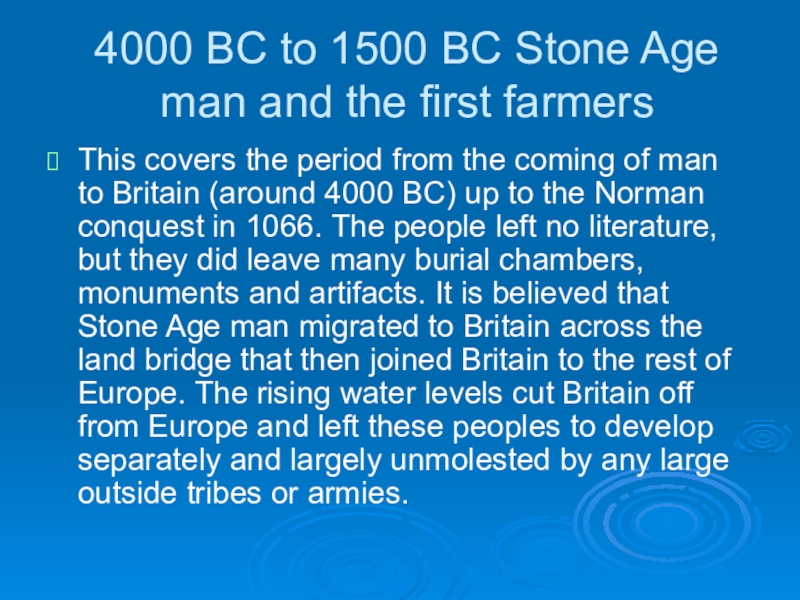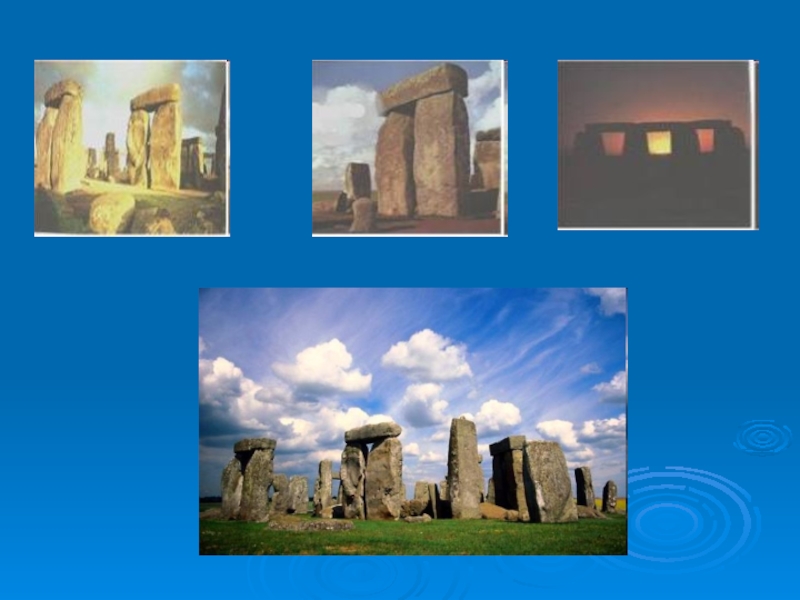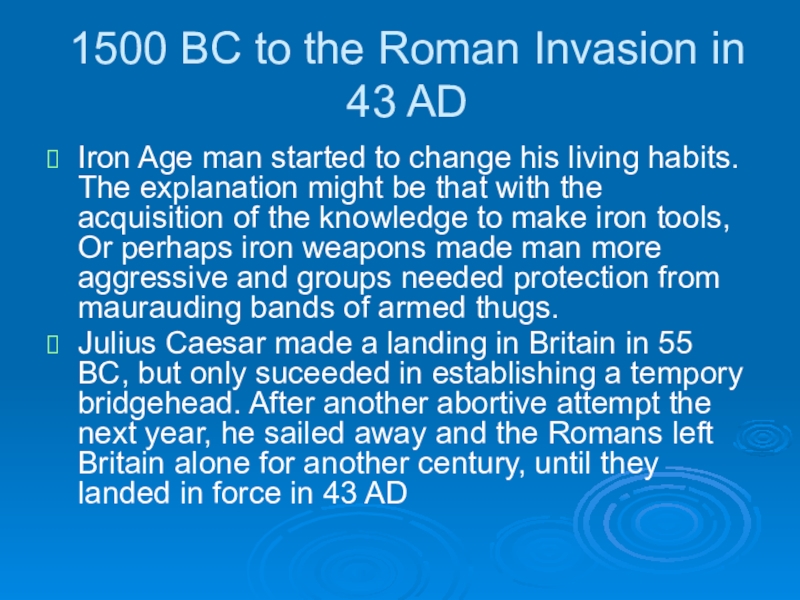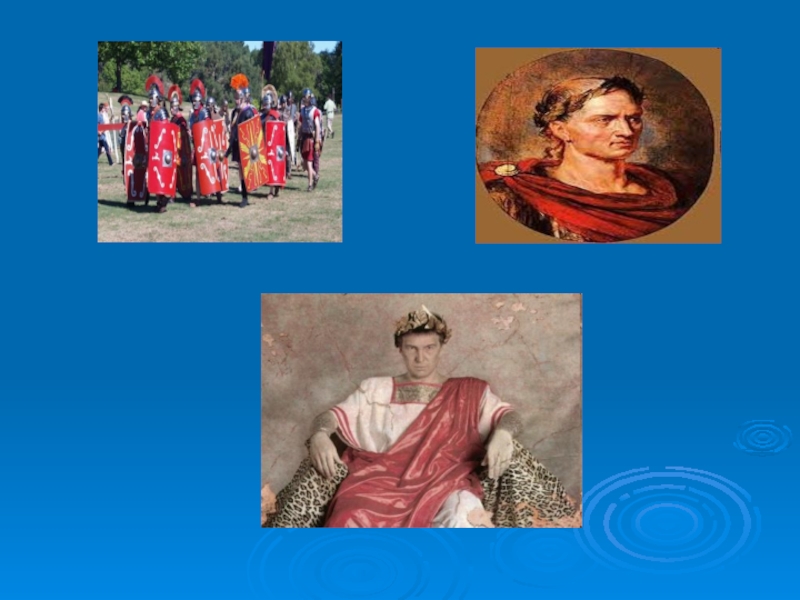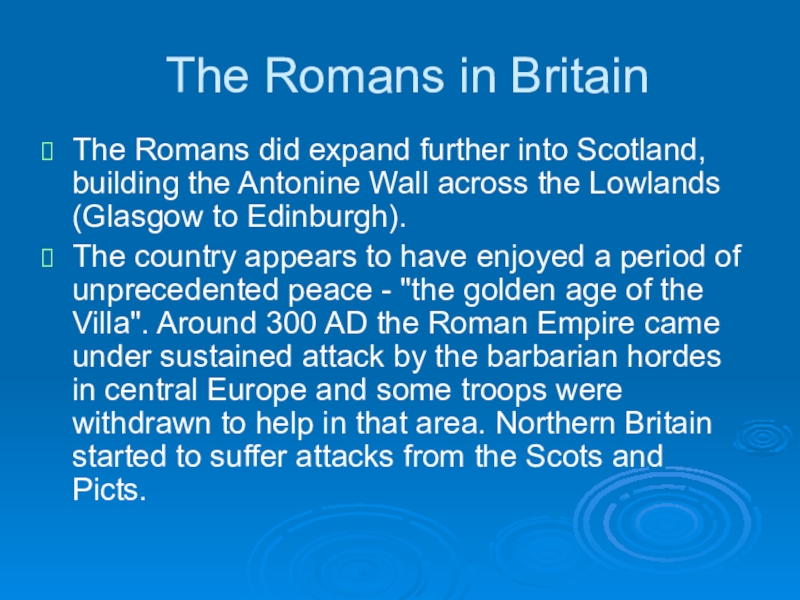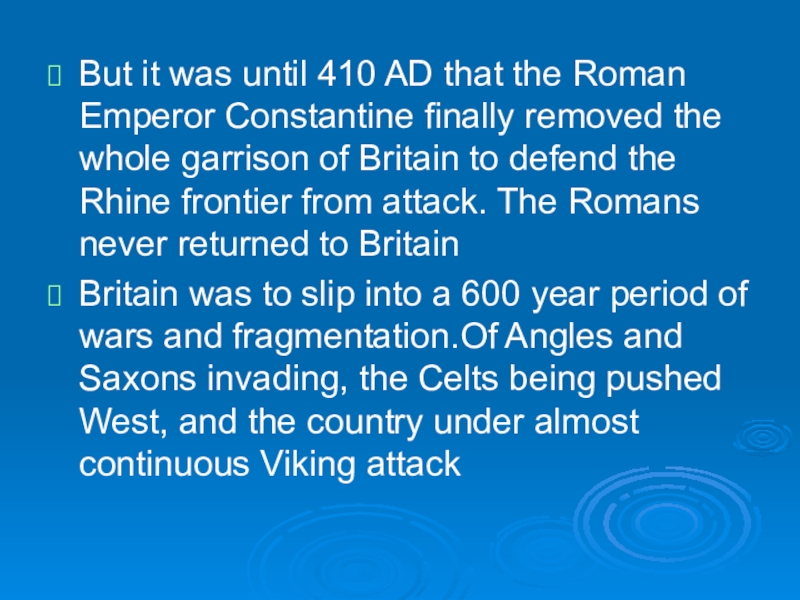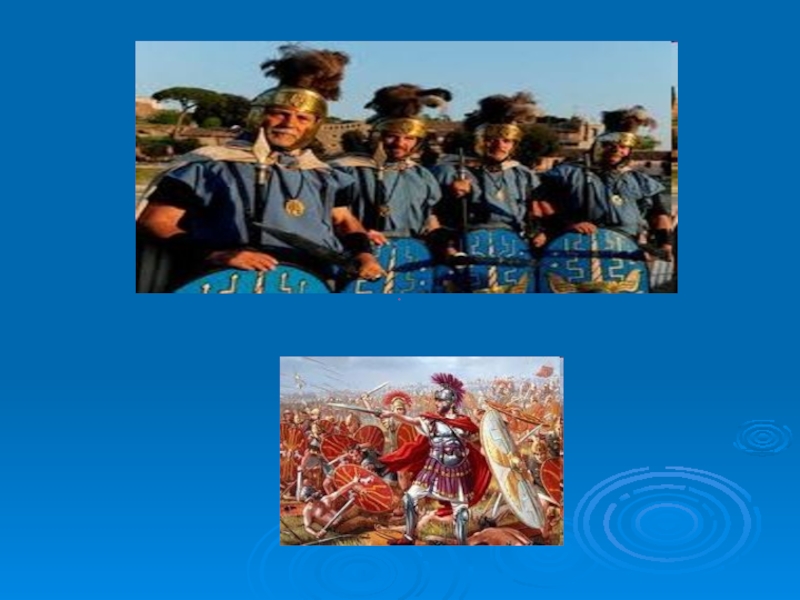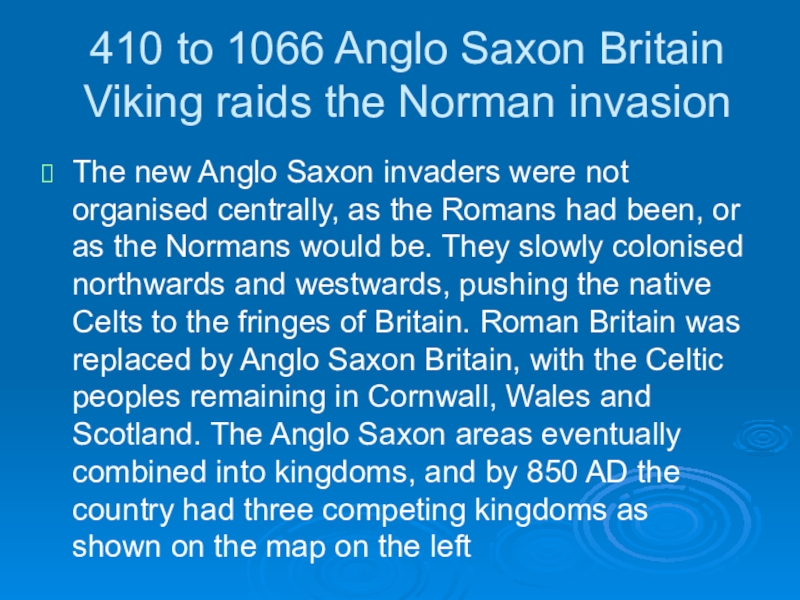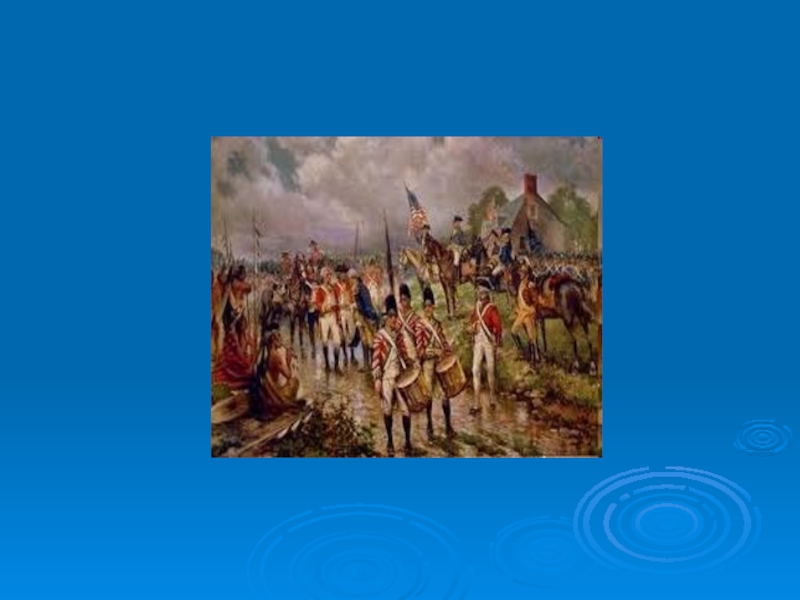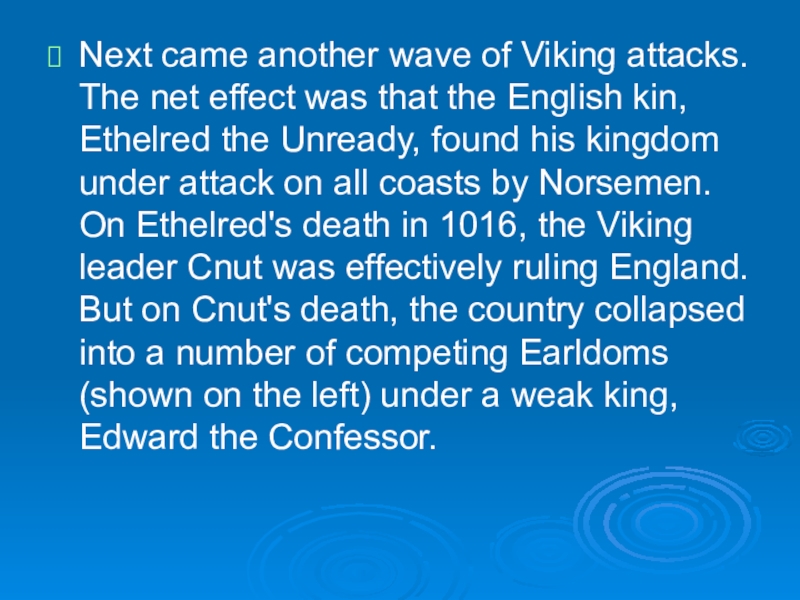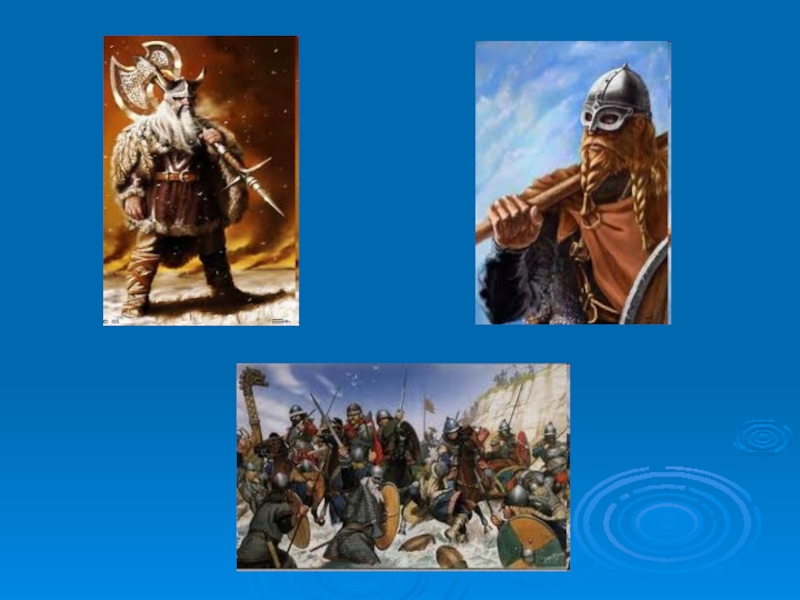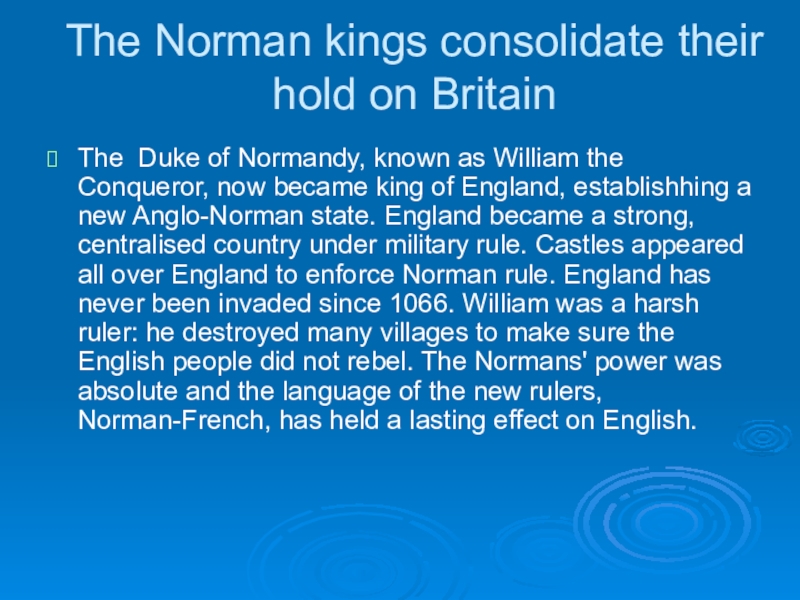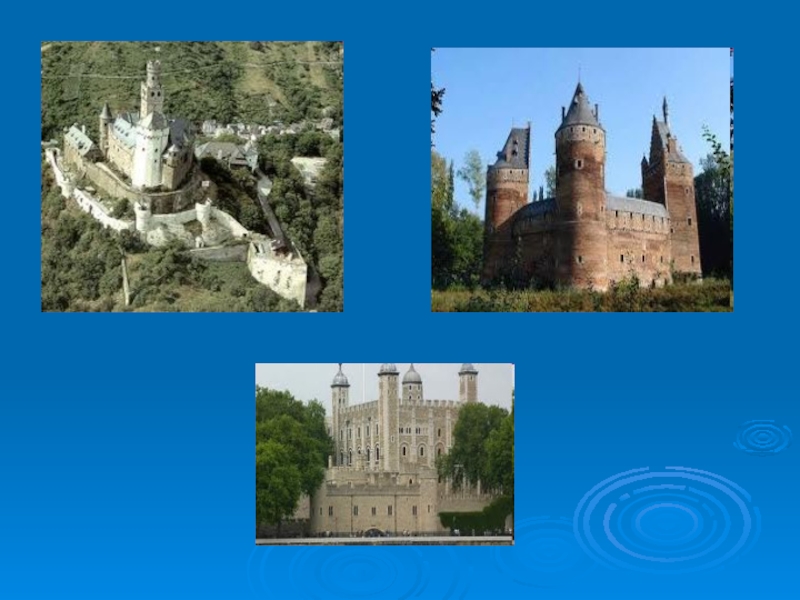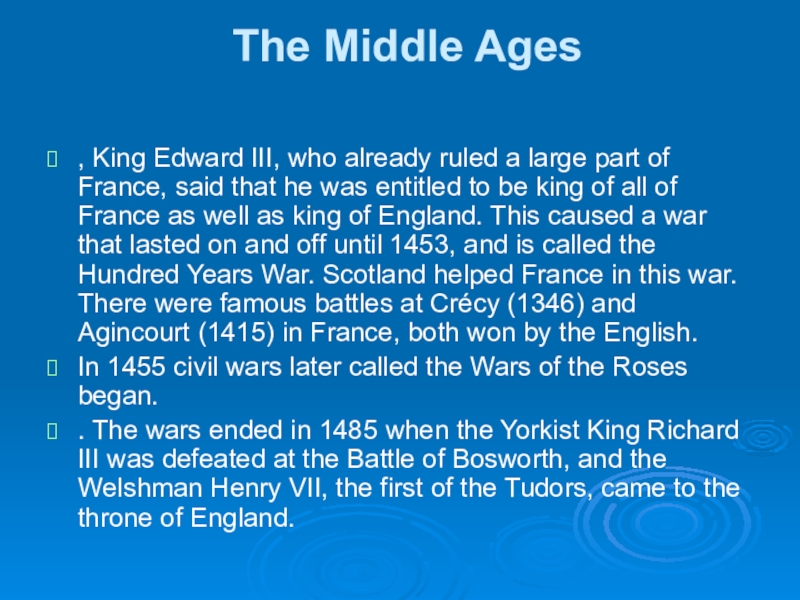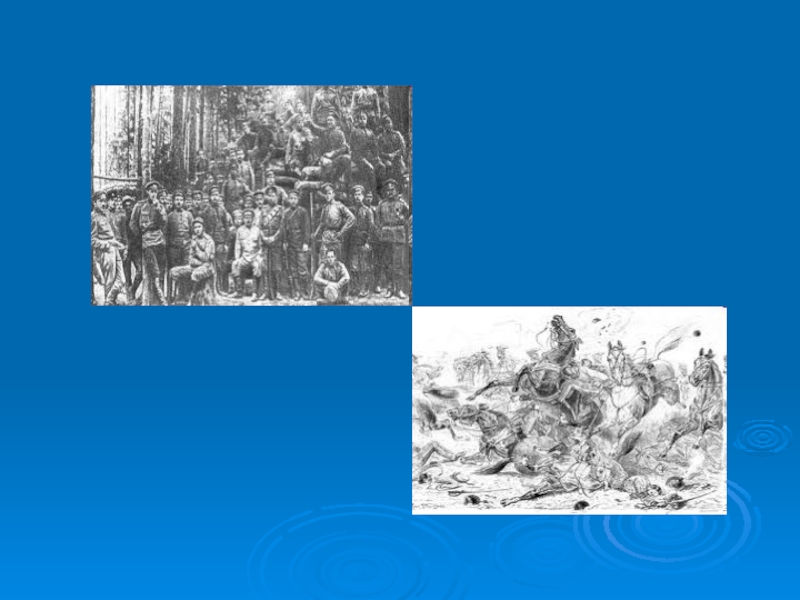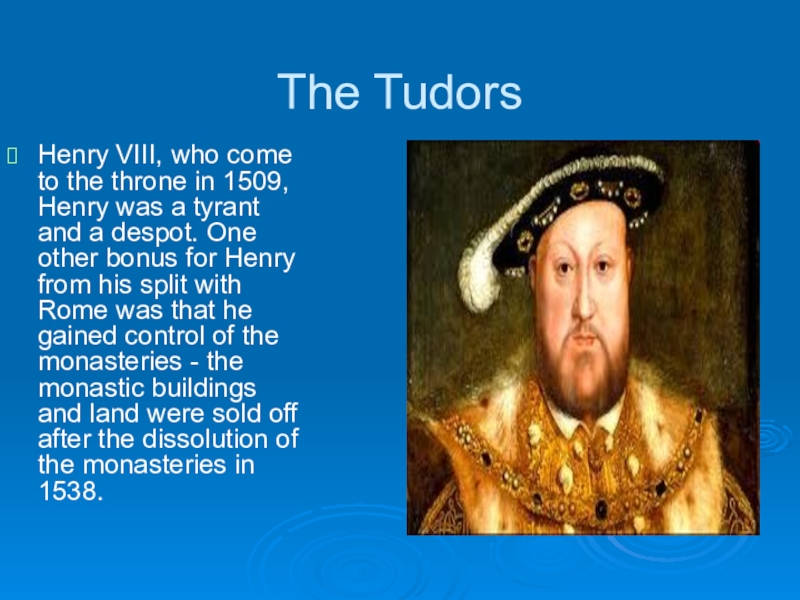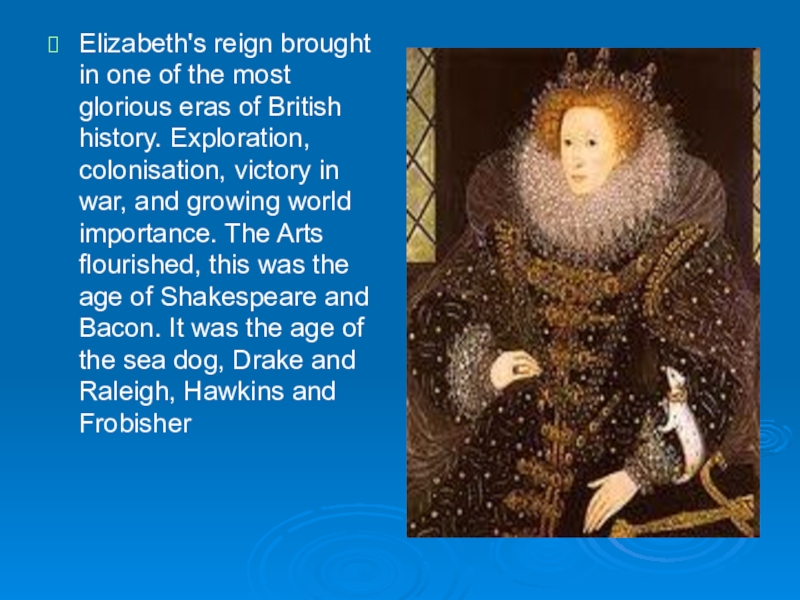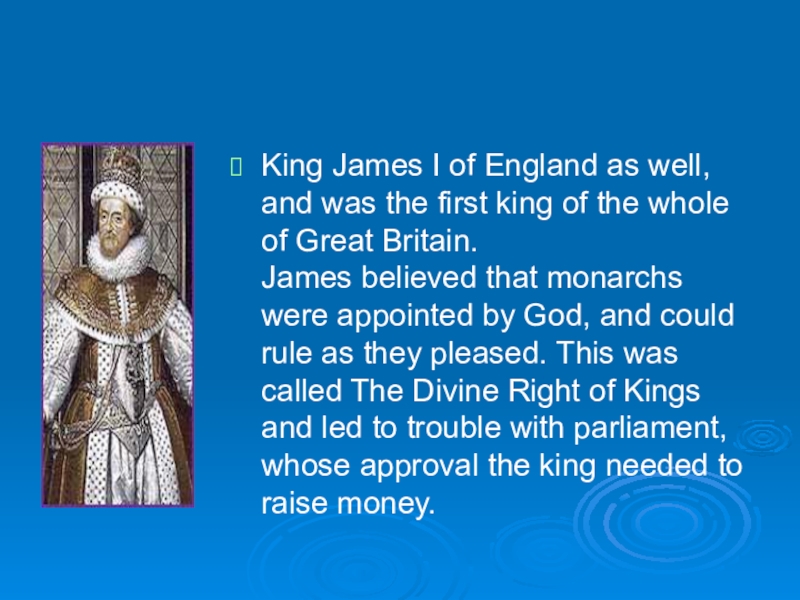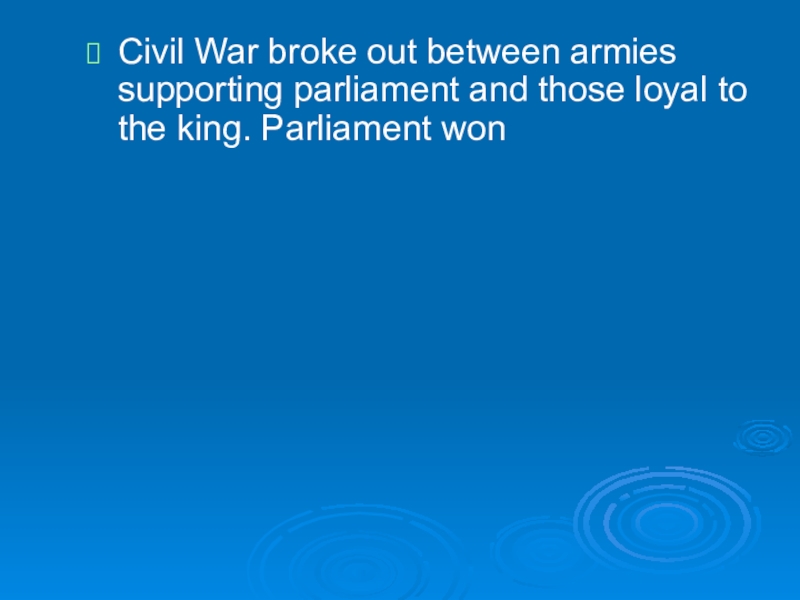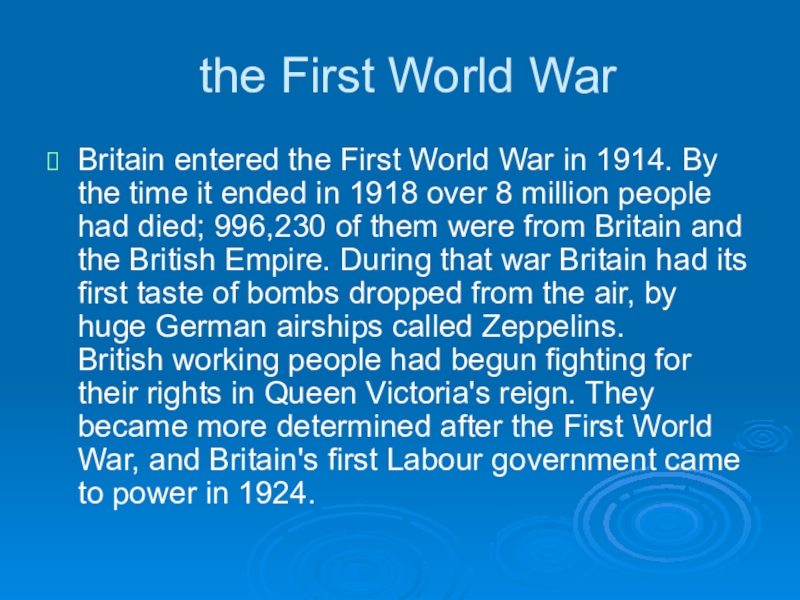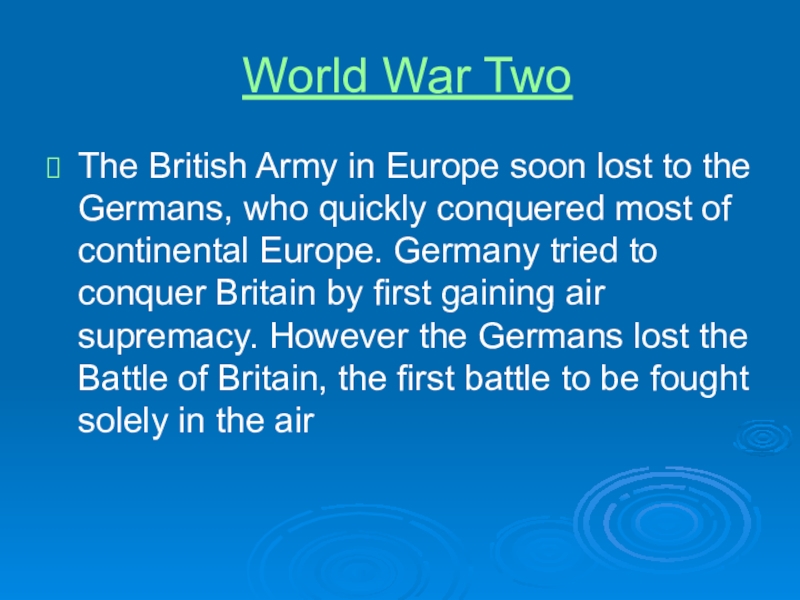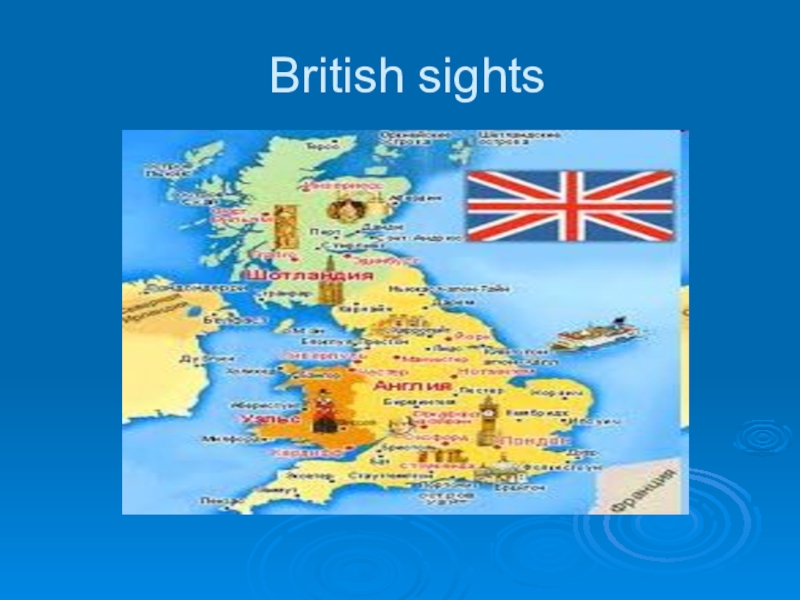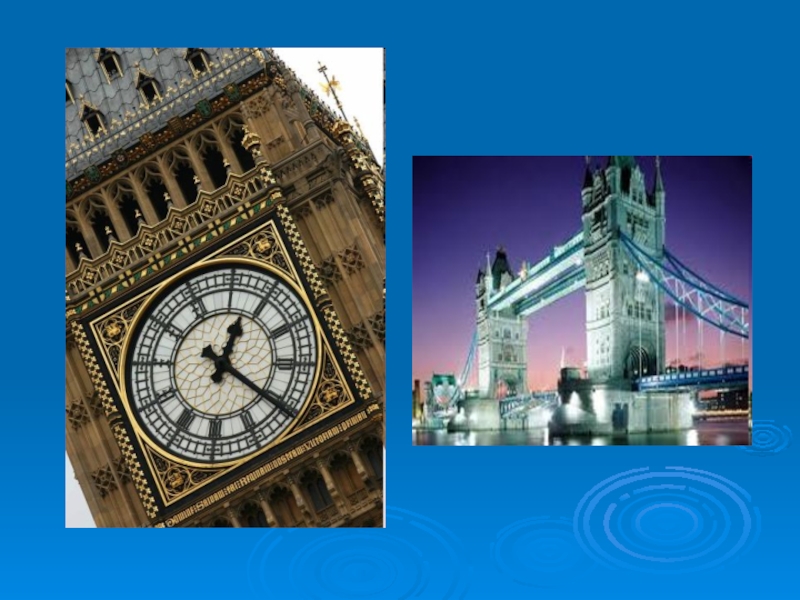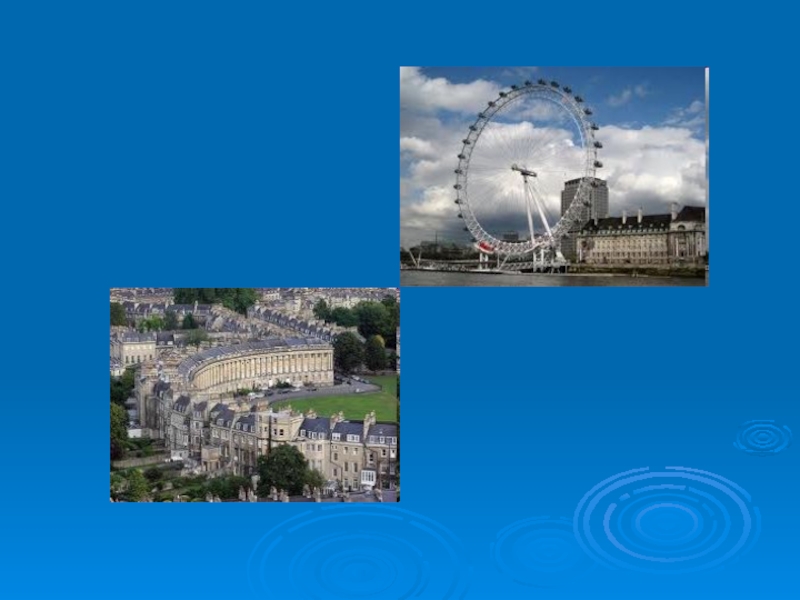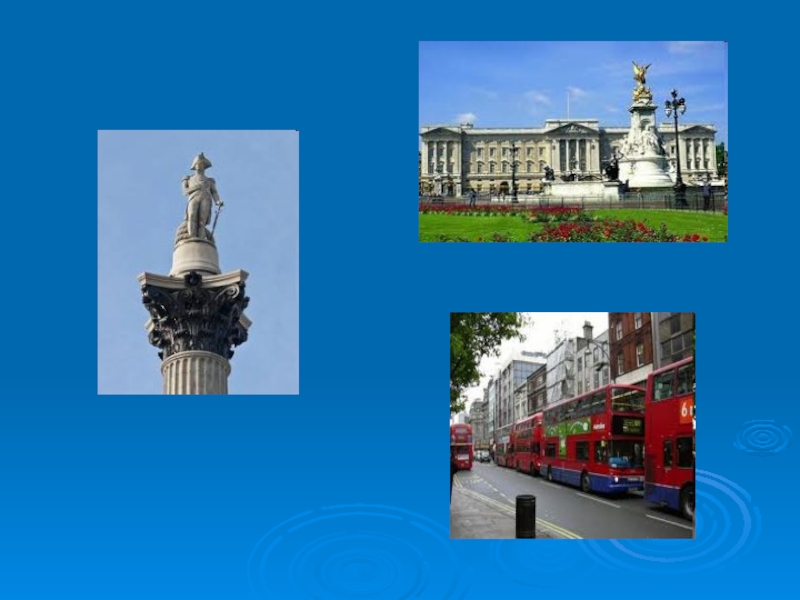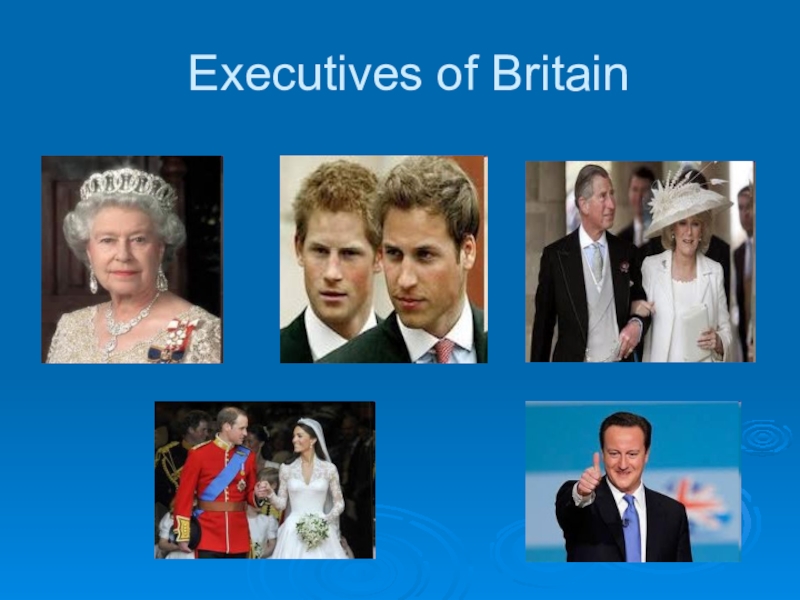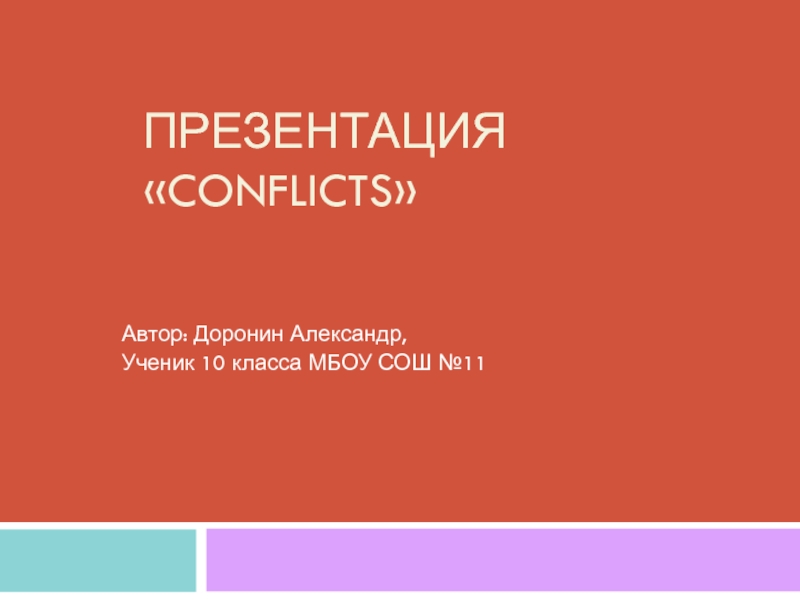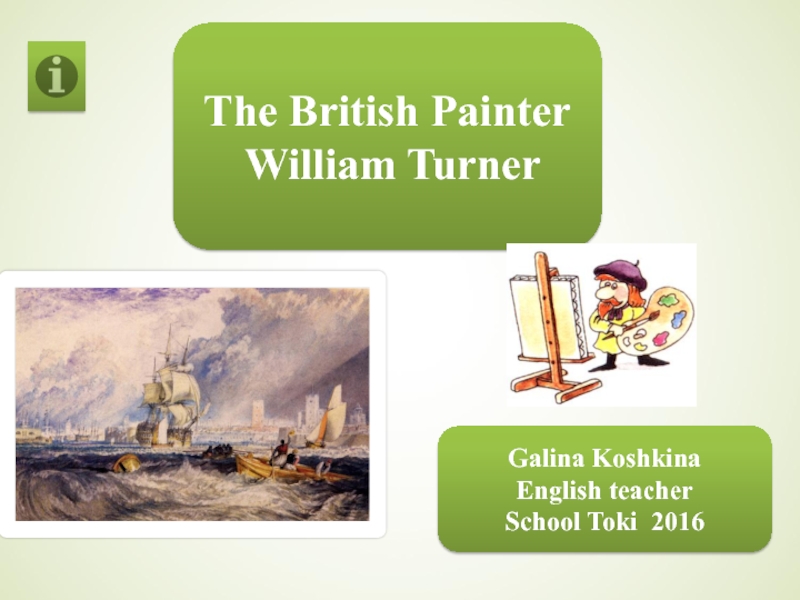Разделы презентаций
- Разное
- Английский язык
- Астрономия
- Алгебра
- Биология
- География
- Геометрия
- Детские презентации
- Информатика
- История
- Литература
- Математика
- Медицина
- Менеджмент
- Музыка
- МХК
- Немецкий язык
- ОБЖ
- Обществознание
- Окружающий мир
- Педагогика
- Русский язык
- Технология
- Физика
- Философия
- Химия
- Шаблоны, картинки для презентаций
- Экология
- Экономика
- Юриспруденция
Great Britain
Содержание
- 1. Great Britain
- 2. 4000 BC to 1500 BC Stone Age
- 3. Слайд 3
- 4. 1500 BC to the Roman Invasion in
- 5. Слайд 5
- 6. The Romans in BritainThe Romans did expand
- 7. But it was until 410 AD that
- 8. Слайд 8
- 9. 410 to 1066 Anglo Saxon Britain
- 10. Слайд 10
- 11. Next came another wave of Viking attacks.
- 12. Слайд 12
- 13. The Norman kings consolidate their hold on
- 14. Слайд 14
- 15. The Middle Ages ,
- 16. Слайд 16
- 17. The TudorsHenry VIII, who come to the
- 18. Elizabeth's reign brought in one of the
- 19. The Stuarts and the Civil
- 20. Civil War broke out between armies supporting
- 21. the First World War Britain entered the
- 22. World War Two The British Army in
- 23. British sights
- 24. Слайд 24
- 25. Слайд 25
- 26. Слайд 26
- 27. Слайд 27
- 28. Executives of Britain
- 29. Скачать презентанцию
4000 BC to 1500 BC Stone Age man and the first farmersThis covers the period from the coming of man to Britain (around 4000 BC) up to the Norman conquest in
Слайды и текст этой презентации
Слайд 24000 BC to 1500 BC Stone Age man and the
first farmers
to Britain (around 4000 BC) up to the Norman conquest in 1066. The people left no literature, but they did leave many burial chambers, monuments and artifacts. It is believed that Stone Age man migrated to Britain across the land bridge that then joined Britain to the rest of Europe. The rising water levels cut Britain off from Europe and left these peoples to develop separately and largely unmolested by any large outside tribes or armies.Слайд 41500 BC to the Roman Invasion in 43 AD
Iron Age
man started to change his living habits. The explanation might
be that with the acquisition of the knowledge to make iron tools, Or perhaps iron weapons made man more aggressive and groups needed protection from maurauding bands of armed thugs.Julius Caesar made a landing in Britain in 55 BC, but only suceeded in establishing a tempory bridgehead. After another abortive attempt the next year, he sailed away and the Romans left Britain alone for another century, until they landed in force in 43 AD
Слайд 6The Romans in Britain
The Romans did expand further into Scotland,
building the Antonine Wall across the Lowlands (Glasgow to Edinburgh).
The
country appears to have enjoyed a period of unprecedented peace - "the golden age of the Villa". Around 300 AD the Roman Empire came under sustained attack by the barbarian hordes in central Europe and some troops were withdrawn to help in that area. Northern Britain started to suffer attacks from the Scots and Picts.Слайд 7But it was until 410 AD that the Roman Emperor
Constantine finally removed the whole garrison of Britain to defend
the Rhine frontier from attack. The Romans never returned to BritainBritain was to slip into a 600 year period of wars and fragmentation.Of Angles and Saxons invading, the Celts being pushed West, and the country under almost continuous Viking attack
Слайд 9410 to 1066 Anglo Saxon Britain Viking raids the Norman
invasion
The new Anglo Saxon invaders were not organised centrally, as
the Romans had been, or as the Normans would be. They slowly colonised northwards and westwards, pushing the native Celts to the fringes of Britain. Roman Britain was replaced by Anglo Saxon Britain, with the Celtic peoples remaining in Cornwall, Wales and Scotland. The Anglo Saxon areas eventually combined into kingdoms, and by 850 AD the country had three competing kingdoms as shown on the map on the leftСлайд 11Next came another wave of Viking attacks. The net effect
was that the English kin, Ethelred the Unready, found his
kingdom under attack on all coasts by Norsemen. On Ethelred's death in 1016, the Viking leader Cnut was effectively ruling England. But on Cnut's death, the country collapsed into a number of competing Earldoms (shown on the left) under a weak king, Edward the Confessor.Слайд 13The Norman kings consolidate their hold on Britain
The Duke of
Normandy, known as William the Conqueror, now became king of
England, establishhing a new Anglo-Norman state. England became a strong, centralised country under military rule. Castles appeared all over England to enforce Norman rule. England has never been invaded since 1066. William was a harsh ruler: he destroyed many villages to make sure the English people did not rebel. The Normans' power was absolute and the language of the new rulers, Norman-French, has held a lasting effect on English.Слайд 15
The Middle Ages
, King Edward III, who already ruled
a large part of France, said that he was entitled
to be king of all of France as well as king of England. This caused a war that lasted on and off until 1453, and is called the Hundred Years War. Scotland helped France in this war. There were famous battles at Crécy (1346) and Agincourt (1415) in France, both won by the English.In 1455 civil wars later called the Wars of the Roses began.
. The wars ended in 1485 when the Yorkist King Richard III was defeated at the Battle of Bosworth, and the Welshman Henry VII, the first of the Tudors, came to the throne of England.
Слайд 17The Tudors
Henry VIII, who come to the throne in 1509,
Henry was a tyrant and a despot. One other bonus
for Henry from his split with Rome was that he gained control of the monasteries - the monastic buildings and land were sold off after the dissolution of the monasteries in 1538.Слайд 18Elizabeth's reign brought in one of the most glorious eras
of British history. Exploration, colonisation, victory in war, and growing
world importance. The Arts flourished, this was the age of Shakespeare and Bacon. It was the age of the sea dog, Drake and Raleigh, Hawkins and FrobisherСлайд 19
The Stuarts and the Civil War
King James I of
England as well, and was the first king of the
whole of Great Britain. James believed that monarchs were appointed by God, and could rule as they pleased. This was called The Divine Right of Kings and led to trouble with parliament, whose approval the king needed to raise money.

